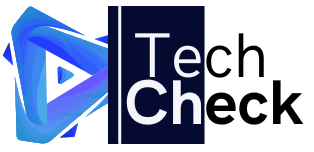Are you ready to witness a revolution in the way we learn? Artificial intelligence (AI) is no longer a futuristic concept; it's rapidly transforming education, and its impact is nothing short of extraordinary. From personalized learning experiences to automated administrative tasks, AI is reshaping classrooms and empowering both educators and students in ways we never thought possible. Prepare to be amazed as we delve into the exciting world of AI in education!
Personalized Learning: AI's Superpower
One of the most significant contributions of AI in education is its ability to personalize the learning experience. Forget the one-size-fits-all approach; AI tailors educational content to individual student needs and learning styles. Imagine a system that identifies your strengths and weaknesses, then adapts the curriculum to focus on areas where you need extra support. This is the power of AI-driven personalized learning platforms. These platforms use sophisticated algorithms to analyze student performance, identify knowledge gaps, and recommend customized learning paths. This allows educators to focus on individual student needs, providing targeted interventions and support where necessary.
Adaptive Learning Platforms
Adaptive learning platforms are the superstars of personalized learning. These AI-powered systems adjust the difficulty and pace of instruction based on a student's progress. If a student struggles with a particular concept, the platform will slow down and provide additional support. Conversely, if a student excels, the platform will accelerate the learning process, keeping them challenged and engaged. This dynamic adjustment ensures that every student is learning at their own optimal pace and level of understanding.
AI-Powered Tutoring Systems
Ever wished you had a personal tutor available 24/7? AI-powered tutoring systems are making this a reality. These intelligent systems provide students with on-demand support and guidance, answering questions, providing feedback, and offering hints when needed. They can work alongside human teachers, expanding the capacity for individual support and providing students with an always-available learning companion.
Automating Administrative Tasks: Giving Teachers More Time
AI isn't just about personalized learning; it's also about streamlining administrative tasks, freeing up valuable time for teachers to focus on what truly matters – their students. Imagine a world where teachers don't have to spend hours grading papers, creating lesson plans, or managing administrative tasks. This is the promise of AI-powered educational tools. These tools can automate various tasks, from grading multiple-choice tests to creating personalized feedback reports, allowing teachers to dedicate more time to individual student interaction and lesson planning.
Automated Grading and Feedback
AI-powered grading systems can evaluate student work quickly and efficiently, providing immediate feedback on assignments and assessments. While human oversight is still important, particularly for subjective assignments, AI can significantly reduce the time teachers spend on grading, allowing them to focus on more creative and engaging teaching activities.
AI-Driven Lesson Planning and Curriculum Design
AI can assist teachers in creating engaging and effective lesson plans by suggesting relevant resources, tailoring the curriculum to specific learning objectives, and providing data-driven insights into student performance. This can free up teachers to focus on the creative aspects of teaching, allowing them to craft richer and more impactful learning experiences for their students.
Enhancing Accessibility and Inclusivity
AI is playing a crucial role in enhancing accessibility and inclusivity in education. Imagine AI-powered tools that translate languages in real-time, provide real-time captioning, or offer personalized learning support for students with disabilities. These are just some of the ways AI is breaking down barriers to education, making learning more accessible and inclusive for all students, regardless of their background or learning needs. AI-powered tools also aid in identifying and addressing learning difficulties early on, paving the way for timely intervention and support.
AI-Powered Assistive Technologies
Assistive technologies are being revolutionized by AI. These tools, such as text-to-speech software, speech-to-text software, and screen readers, are becoming increasingly sophisticated, providing more personalized and effective support for students with disabilities. AI algorithms can adapt the level of support provided based on individual student needs, ensuring that all students can access and participate fully in the learning process.
Language Translation and Accessibility
AI's ability to translate languages in real time can open doors for many students, helping them to access educational resources and collaborate with peers from different linguistic backgrounds. Similarly, AI-powered captioning tools can greatly improve access for students with hearing impairments, creating a more inclusive learning environment.
The Future of AI in Education
The future of AI in education is bright. As AI technology continues to evolve, we can expect even more innovative applications that will transform the way we learn. The benefits of AI in education are clear: personalized learning, automated administrative tasks, enhanced accessibility, and improved learning outcomes. AI is not meant to replace teachers; it's meant to empower them. The integration of AI in education is a powerful tool that can help us to create a more equitable, efficient, and effective education system for all.
Ready to embrace the future of learning? Let's start leveraging the power of AI today!




